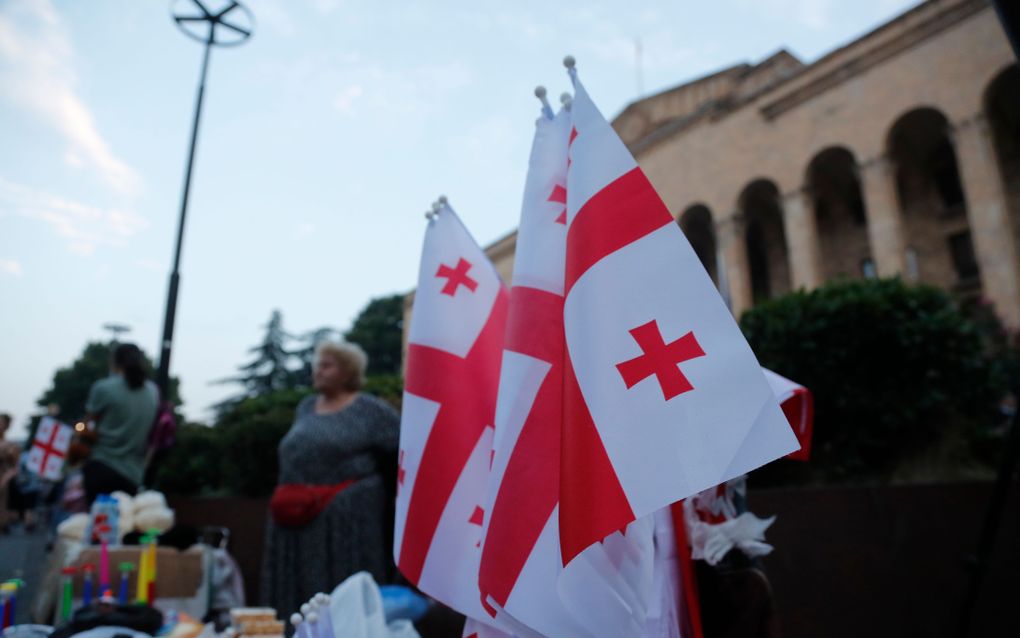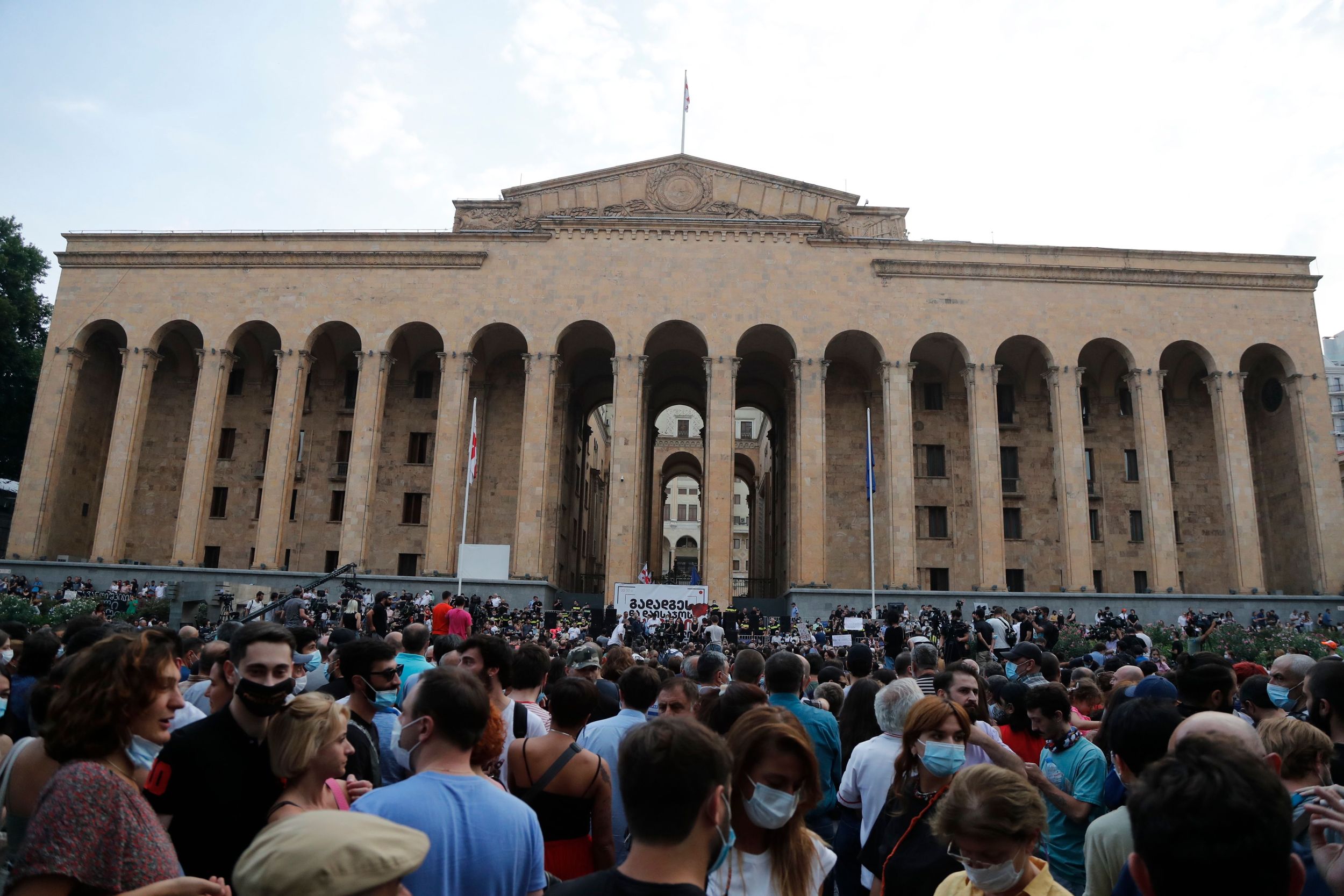Civil unrest after anti-LGBT protests Georgia
Thousands of protesters and journalists have been protesting the current government of Prime Minister Irakli Garibashvili, who they blame for violence during the annual Pride march and the death of a journalist who covered it. The protesters demand that the government resign.

The unrest started on July 5th, when a non-governmental organisation (NGO) had an LGBT pride march planned. That march should have been the last event of the Tbilisi Pride Week, which began on July 1st.
That march, however, did never start. While activists were preparing for the parade, thousands of protesters against the march gathered in front of the Parliament.
According to the Georgian Journal, the protesters were “ultranationalists, pro-Kremlin groups and Georgian Orthodox Church representatives”.
Although Church representatives called upon the protesters to keep the protest peaceful, it soon became violent. According to the Georgian Journal, the protesters assaulted journalists and camera operators, ravaged opposition buildings and replaced a flag of the European Union in front of the Parliament building with a cross.
One of the attacked journalists, 37-year-old Lekso Lashkarava, ended up in hospital with severe fractures to his face. After a few days in the hospital, Lashkarava was allowed to go home. He died there Sunday morning. According to his colleagues, he died of his injuries. The investigation into his death is still ongoing.
During the riots, the Ministry of Internal Affairs expressed its inability to ensure the safety of participants of the Pride March. “Once again, we publically urge Tbilisi Pride participants to refuse the idea of holding a march in an open, public space, due to the scale of the opponent groups’ protest,” reads the MIA statement.
Soon after the MIA statement, Tbilisi Pride released its own statement. It accused the state of encouraging violent groups and not taking adequate measures to ensure “March of Dignity” protesters’ security. After that, the NGO cancelled the march.

Prime Minister Irakli Gharibashvili commented, describing the idea of holding a march as “inexpedient”. He accused “radical opposition led by Saakashvili” of being an organiser, writes the Georgian Journal.
Surprise
In total, 55 people were injured. Fifty-three of them were journalists, writes the Caucasian Knot, an online news website. The human rights organisation Amnesty International condemned the government’s reaction to the unrest. “The government deployed inadequately small numbers of policemen who were only reacting to violent attacks, rather than providing an organised protection for LGBTI activists”, said Denis Krivosheev, Amnesty International’s Deputy Director for Eastern Europe and Central Asia in a statement.
According to Gia Volski, First Deputy Chairman of the Parliament of Georgia, the police was surprised by the sudden violence. “Both the organisers of the rally and the attackers did everything to make the police ineffective”, says Volski to Kviris Palitra, a weekly Georgian newspaper. Volski continues: “Who expected that instead of the Pride organisers, who eventually no longer appeared, journalists would be persecuted?”
According to Volski, violence breeds violence. “That is why our police acted cautiously, in the interests of the state.”
Scuffle
After the riots, Georgian media outlets wanted their Prime Minister Irakli Garibashvili to resign. When the PM delivered a speech, he declared to stay on as PM. After the speech, angry journalists broke into the Parliament, where a scuffle originated.
They were helped by opposition MPs, who demanded that the press be allowed into the meeting room. A fight then broke out in Parliament, which was broadcasted live on Georgian television.
On Tuesday, four Georgian TV stations stopped broadcasting for 24 hours in protest against the government. TV companies TV Pirveli, Mtavari TV, Formula and Kavkasia demand the resignation of Prime Minister Irakli Gharibashvili and punishment for all offenders involved in the July 5th anti-LGBT violence in Tbilisi.
According to the Georgian Journal, the screens of the TV stations list the names of assaulted journalists during the July 5th events. In red, the stations show their demands: “Gharibashvili must resign! All offenders must be punished!”.